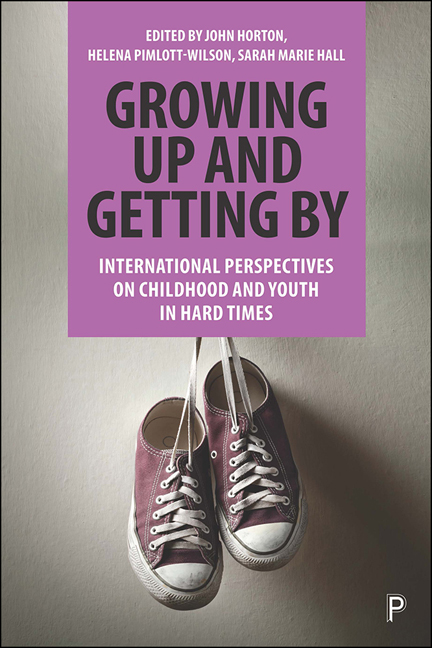10 - Learning to pay: the financialisation of childhood
Published online by Cambridge University Press: 18 December 2021
Summary
Introduction
In the UK in 2020, there appears to be a broad consensus in academic, media and policy discourses on the value of financial education. Youth financial education in particular, remains a strong focus of policymakers, scholars and researchers, with the general agreement being that financial education for youth is of vital importance to the long-term fiscal wellbeing of individuals, families and indeed the UK as a whole (Fox et al, 2005; Sherraden et al, 2011). As Totenhagen at al (2015) state, ‘Reaching youth before poor financial habits are established is essential for long-term financial well-being’ (p.180). As evidenced by the work of the OECD over the last 20 years, the importance of financial education for financial stability and inclusive development is globally acknowledged (Atkinson and Messy, 2013; Maman and Rosenhek, 2020).
How best to deliver financial education, what materials to include and who should be charged with this responsibility are all areas for debate in the ethical drive to optimally influence young people's financial capability. However, the real fly in the ointment of the international financial education movement is the growing body of research which suggest that it doesn't actually work. Gudmunson and Dames (2011) note that the uncomfortable conundrum in this field was how often financial knowledge actually proved ineffective as a predictor of financial behaviour or indeed change in behaviour.
This chapter draws on an analysis of recent UK financial education tools and practices produced by for-profit financial institutions. We seek to reflect on what we consider to be some of the more questionable practices involved in youth financial education in the UK. We locate these practices in broader debates about the financialisation of childhood and suggest that, while financial education is a seductive imaginary for the neoliberal age, a range of fundamental misunderstandings about financial strain and its precursors, potentially toxic constructions of childhood and an increasingly questionable commercial shaping of youth fatally wound the promise of financial education.
Financialising childhood: shaping children's subjectivities
The OECD recently stated that financial education is ‘the process by which financial consumers/investors improve their understanding of financial products, concepts and risks and, through information, instruction and/or objective advice, develop skills and confidence to become more aware of financial risks and opportunities, to make informed choices, to know where to go for help, and to take other effective actions to improve their financial wellbeing’ (Arrondel, 2018: 246).
- Type
- Chapter
- Information
- Growing Up and Getting By , pp. 193 - 210Publisher: Bristol University PressPrint publication year: 2021



